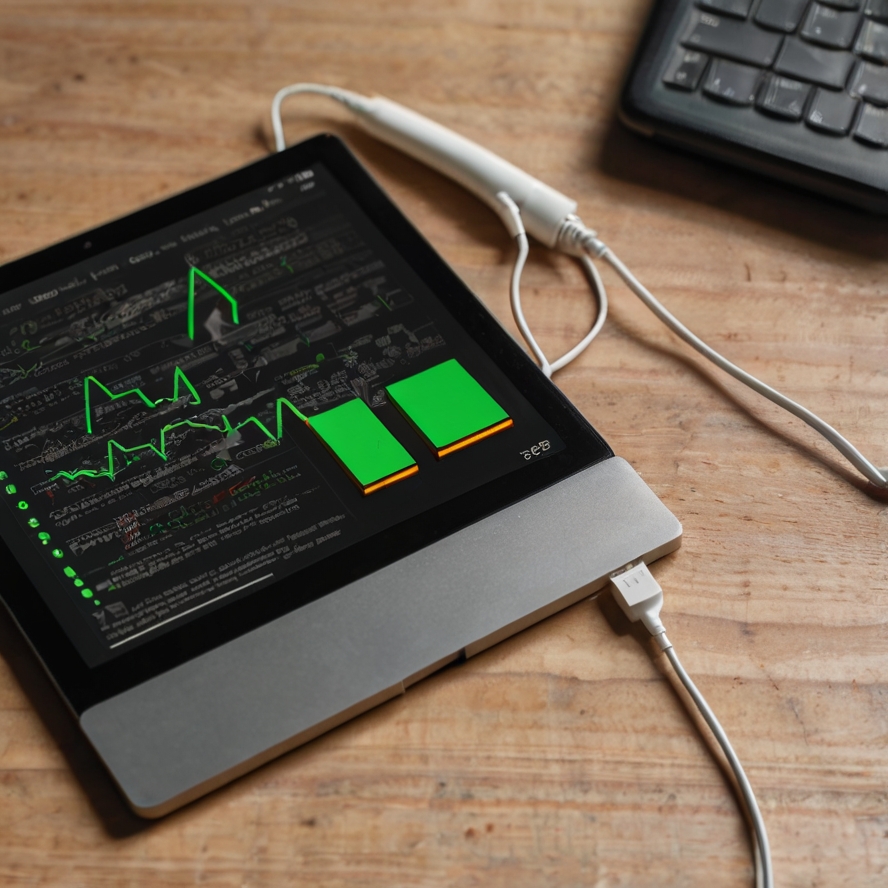Laptops are an essential part of modern life, from working professionals to students. However, with extensive use comes concern over one common question: Can I leave my laptop plugged in all the time? Whether you’re worried about damaging your laptop’s battery or confused by conflicting advice, this article aims to clear the air. Let’s break down the realities of charging and battery care so you can make informed decisions.
Table of Contents
Can I Leave My Laptop Plugged in All the Time?

The short answer? Yes, you can leave your laptop plugged in all the time, but it’s not always the best practice for your battery. Most modern laptops use lithium-ion batteries designed to stop charging once they reach 100%. But there are still considerations for long-term battery health, which we’ll explore throughout this article.
Understanding Laptop Batteries
Most laptops today use lithium-ion or lithium-polymer batteries. These batteries are favored because they are lightweight, efficient, and charge quickly. They operate by moving ions between two electrodes, and over time, the ability to hold a charge decreases with more charging cycles.
How Lithium-Ion Batteries Work
These batteries are designed to handle a set number of charge cycles—usually between 300 and 500 full charges—before their capacity significantly declines. That means the more you charge from 0% to 100%, the shorter your battery’s lifespan becomes.
Does a Laptop Stop Charging When Full?

Yes, laptops stop charging once the battery reaches 100%. Most modern laptops feature smart charging technology. Once the battery is fully charged, the charger stops sending current, and the laptop runs directly off the power supply. This prevents overcharging, which was a bigger issue in older devices.
How Laptop Batteries Manage Overcharging
Advanced internal circuits in laptops are designed to handle overcharging by cutting off the current to the battery once it’s full. This means your laptop won’t overheat or suffer damage from being plugged in too long.
Should I Keep My Laptop Plugged in All the Time?

Leaving your laptop plugged in all the time has both pros and cons. While it won’t immediately harm your battery, continuous charging could have some long-term effects.
Benefits of Keeping Your Laptop Plugged In
One advantage of keeping your laptop plugged in is that you’re not using your battery at all. This means no battery wear from charging cycles, and your laptop will operate at full power, maintaining peak performance for resource-heavy tasks like gaming or video editing.
Downsides of Keeping Your Laptop Plugged In
However, leaving your laptop constantly plugged in can lead to battery degradation over time. This is due to the slight increase in heat generated by continuous charging, which can affect battery lifespan. Additionally, when the battery is always fully charged, it can wear out faster over the long term.
How to Maintain Laptop Battery Health
To extend your battery’s lifespan, here are some best practices:
Ideal Charging Range
It’s a good idea to keep your battery between 20% and 80% charge. Completely draining the battery to 0% or constantly charging it to 100% can reduce its overall lifespan.
Balancing Usage and Charging
Unplugging your laptop occasionally is essential. If you use it mainly as a desktop, consider setting battery charge limits in your laptop’s settings, where available.
Common Myths About Laptop Batteries
Many people believe that overcharging or leaving a laptop plugged in will immediately damage the battery. While this might have been true for older laptop models, today’s batteries are equipped with technology that prevents this.
Can Overcharging Damage the Battery?
As we’ve discussed, modern laptops are designed to stop charging at 100%, so overcharging is no longer a major concern. The real issue is more about heat than charging itself.
Does Battery Life Diminish When Always Plugged In?
While your laptop won’t overcharge, leaving it plugged in all the time can still reduce your battery’s long-term capacity. Over time, constantly charging to 100% will wear down the battery’s maximum capacity.
Conclusion
In summary, while leaving your laptop plugged in all the time won’t cause immediate damage, it’s not the best practice for long-term battery health. The key is to balance usage, avoid extremes like complete discharges or constant full charges, and ensure good heat management. If you want to extend your laptop battery’s life, occasionally unplug it and maintain it within an optimal charge range.
FAQs
- How long should a laptop battery last?
On average, a laptop battery should last 2-4 years or 300-500 full charge cycles, depending on usage. - What happens if I leave my laptop charging overnight?
Thanks to smart charging technology, nothing should happen, but it’s best not to make it a habit due to potential heat buildup. - Can heat from continuous charging damage my laptop?
Yes, excess heat can degrade the battery and other internal components over time. - Is there a difference between desktop and laptop charging habits?
Desktops are always plugged in because they don’t have batteries, while laptops need more careful charging habits to maintain battery health. - Should I ever fully drain my laptop battery?
No, it’s best to avoid fully draining your battery to 0% as it can reduce its lifespan over time.
More from Science and technology



